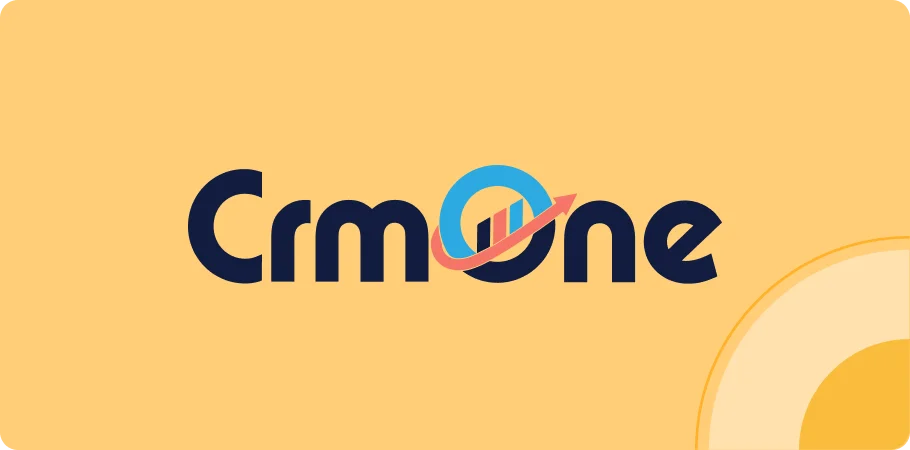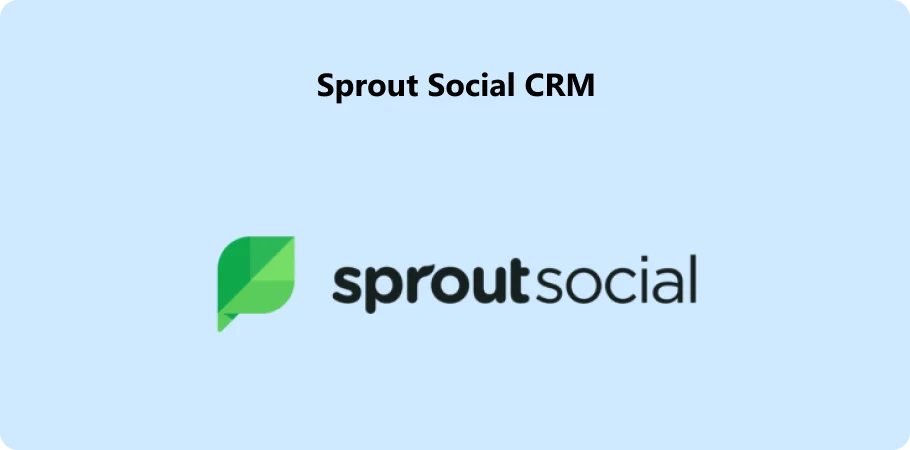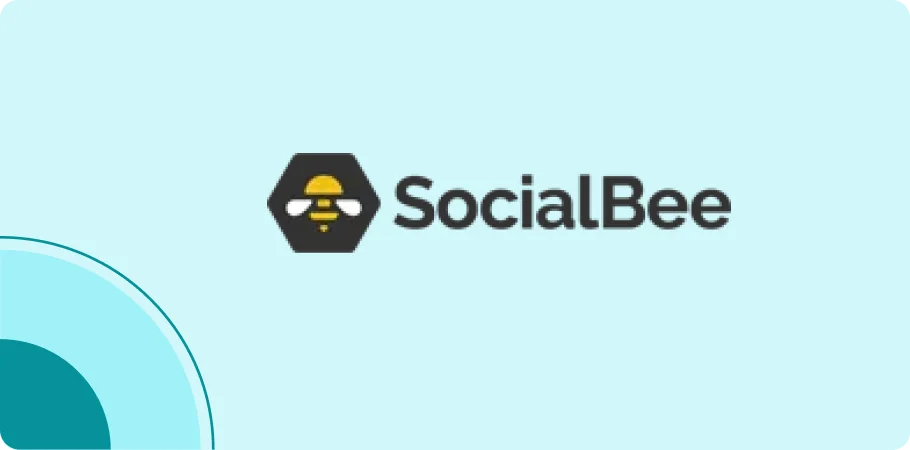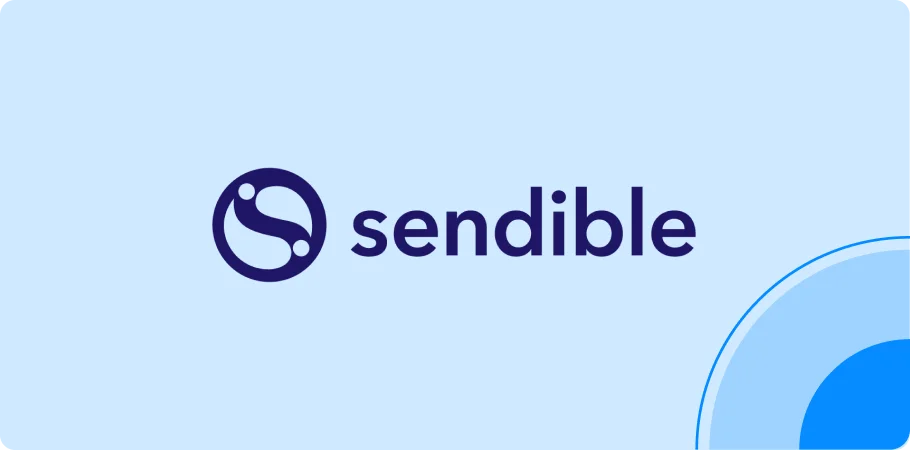In the last 20months, social media has been nothing but tumult. Twitter is now X, AI is everywhere, Threads are a thing, and Mastodon may or may not be relevant again. In the face of all this chaos, social media still remains one of the most powerful tools at the disposal of modern businesses.
You can use these to find new clients, drive traffic to your site, or keep in touch with existing clients in a way that they stay engaged with your business. However, with all the drama, it is more important than ever to have the tools to help keep on top of things.
With social media even more fragmented than it was before with a little carelessness you can end up wasting large chunks of your precious time attempting to stay on top of 5 inboxes across 5 different apps, post the same stuff all over the place, and do everything else that you have to. It’s virtually impossible to do this from generic consumer apps. For this kind of thing, you need a proper social CRM app. The absolute best social media management tools will let you control your entire social media presence from just one app.
You are able to automate, analyze, and manage social media accounts, meaning you are free to make the type of content that your followers love. I put nearly 50 social media management apps through their paces and based on my testing this year, here are the six best.
Social Media Management & Tools

Social media management refers to the process of creating, scheduling, and managing content across multiple social media platforms. It involves monitoring and engaging with audience interactions, tracking performance metrics, and adjusting strategies accordingly. Effective social media management requires a combination of tools and techniques to streamline workflows, enhance collaboration, and improve overall performance.
Key tools for social media management include social media management platforms and social media management software, which help social media managers and teams schedule social media posts, monitor social media accounts, and analyze social media performance. Additionally, social media management apps are valuable for on-the-go management, ensuring a consistent social media presence across various channels.
This approach not only simplifies social media management tasks but also allows businesses to optimize their social media strategies for better engagement and results.
Benefits of Social Media Management Tools

Social media management tools offer numerous benefits, including:
- Time Savings: By automating repetitive tasks and scheduling posts in advance, social media managers can save significant time and focus on more strategic activities.
- Increased Efficiency: These tools help streamline workflows, reduce manual labor, and enhance collaboration among team members.
- Improved Analytics: Advanced analytics capabilities provide detailed insights into audience engagement, helping managers adjust their strategies for better results.
- Enhanced Collaboration: Social media management tools often include features for team collaboration, ensuring that all stakeholders are on the same page.
Criteria for Selection
When choosing the top social media management tools for 2025, several key factors were considered:
- User Reviews and Ratings: Feedback from actual users provides valuable insights into the tool’s usability and effectiveness.
- Features and Capabilities: The range of functionalities offered, including scheduling, analytics, team collaboration, and integration with multiple platforms.
- Ease of Use: Intuitive interfaces that simplify social media management tasks for users of all skill levels.
- Customer Support: Availability of responsive customer support to address queries and issues promptly.
- Cost-Effectiveness: Value for money based on pricing plans and the features offered.
Top 10 Social Media Management Tools for 2025
Hootsuite

Hootsuite is a renowned social media management platform and social media management software that empowers users to manage multiple social media accounts seamlessly. It offers comprehensive customer experience management through tools for scheduling posts, monitoring brand mentions, and analyzing audience insights.
Integrated platform integration capabilities allow users to manage various channels like Facebook, Twitter, and LinkedIn from one dashboard. Robust reporting tools provide analytics on Google Business Profile and other platforms, making Hootsuite indispensable for optimizing social media marketing strategies.
CrmOne

CrmOne stands out by combining robust social media management with CRM functionalities, offering Social CRM platform for seamless customer relationship management alongside comprehensive social media engagement and detailed analytics. This integration allows businesses to streamline their social media workflow while managing multiple social media accounts effectively.
As a social media manager’s dream tool, CrmOne not only simplifies scheduling and publishing across platforms but also enhances social media monitoring capabilities. It provides actionable social media metrics that help businesses gauge performance and optimize content strategies. CrmOne is recognized for facilitating best social CRM practices, equipping users with the tools needed to monitor trends and engage effectively.
Buffer

Buffer stands out as a leading social media management tool and social media management platform that simplifies social media scheduling through its intuitive interface and robust analytics features. It supports scheduling across multiple social networks and provides valuable insights to optimize social media posts and enhance social media strategy.
As a versatile social media software, Buffer enables users to manage posts across various social media platforms efficiently. It supports scheduling and analytics, making it an essential tool for businesses aiming to maximize social media ROI.
Sprout Social

Sprout Social excels in integrated social media management, offering tools for scheduling posts, monitoring social media performance, and engaging with audiences across multiple accounts. It seamlessly integrates with major social networks, allowing businesses to manage multiple social media profiles effectively.
Businesses benefit from Sprout Social’s ability to coordinate marketing campaigns and optimize social media campaigns across different social media platforms. Its robust features make it a best social media management choice for businesses looking to enhance their online presence and engage with their audience effectively.
Later

Later specializes in visual content scheduling across social media platforms like Instagram, Facebook, Twitter, and Pinterest. It offers intuitive features such as drag-and-drop planning and robust analytics, empowering social media managers to optimize their marketing strategy with visual content.
As a versatile social media tool, Later allows users to manage multiple social media accounts effectively. It enhances marketing efforts by providing tools to schedule posts, curate content from a media library, and analyze social messages for better engagement. Its user-friendly interface and a few features make it a preferred choice for businesses aiming to strengthen their social presence through strategic visual content.
SocialBee

SocialBee stands out for its robust social media automation capabilities, enabling users to schedule posts, categorize content, and recycle evergreen posts effortlessly. It supports multiple social media channels and offers detailed analytics to track performance metrics and optimize strategies for better social engagement.
With features for community management and social monitoring, SocialBee empowers businesses to stay connected with their audience and respond promptly to interactions. Its collaborative tools allow multiple team members to work together efficiently, ensuring a cohesive social media presence.
Having been in the industry for over a decade, SocialBee has continually evolved to meet the changing needs of businesses, making it a trusted choice for automating social media tasks. Additionally, its smart inbox feature streamlines communication by consolidating messages from various platforms, enhancing community engagement and customer satisfaction.
Sendible

Sendible is tailored for agencies and businesses that handle social media management for clients, providing a suite of tools designed to streamline workflows and enhance client interactions. This platform offers robust collaboration tools that allow teams to efficiently coordinate and manage social media campaigns across various platforms.
One of Sendible’s standout features is its content planning capabilities, which enable users to schedule posts in advance, ensuring a consistent and timely presence on social media channels. This not only saves time but also enhances engagement by reaching audiences at optimal times.
For agencies managing multiple clients, Sendible’s comprehensive reporting feature is invaluable. It provides detailed analytics and performance metrics, allowing agencies to demonstrate ROI and make data-driven decisions to optimize their social media strategies.
Book a CrmOne Demo
Experience the CrmOne simplicity and power. Our experts will show you the best ways to use it and answer your questions in real time. See how CRMOne fits your needs.

CoSchedule

CoSchedule offers a comprehensive platform designed to streamline content planning, social media scheduling, and team collaboration, making it an essential tool for businesses aiming to enhance their marketing efforts. At its core, CoSchedule provides a unified content calendar that allows teams to plan and organize content across various channels.
One of CoSchedule’s key strengths is its robust social media scheduling capabilities, enabling users to schedule posts across multiple platforms such as Facebook, Twitter, and LinkedIn from a single dashboard. This feature not only saves time but also ensures a consistent and effective social media presence.
In addition to content and social media management, CoSchedule includes task management tools that facilitate team collaboration and project coordination. Teams can assign tasks, set deadlines, and track progress within the platform, promoting efficiency and accountability.
Loomly

Loomly is a specialized platform that prioritizes brand-centric social media management, catering to businesses and marketers looking to enhance their online presence through effective content strategies. At its core, Loomly offers a range of features designed to streamline brand management across social media platforms.
One of Loomly’s key features is its robust content creation capabilities, empowering users to craft engaging and relevant content that resonates with their audience. The platform supports multimedia content creation, allowing brands to maintain a consistent voice and style across different channels.
In terms of scheduling, Loomly provides tools that enable users to plan and automate posts, ensuring timely and consistent content delivery. This feature not only saves time but also helps optimize posting times for maximum engagement.
Falcon.io

Falcon.io is a robust platform tailored for enterprise-level social media management, providing comprehensive tools to empower businesses in planning, executing, and optimizing their social media strategies across diverse channels.
At its core, Falcon.io excels in content planning by offering intuitive features that allow enterprises to schedule and organize content across various social media platforms. This capability ensures a cohesive and strategic approach to content distribution, tailored to reach and engage target audiences effectively.
One of Falcon.io’s key strengths lies in audience engagement tools, which enable enterprises to interact proactively with their audience through social media. These tools facilitate real-time monitoring, response management, and community building, fostering stronger connections and enhancing brand loyalty.
Analyzing User Ratings for Social Media Tools

Analyzing user ratings for social media management tools provides valuable insights into how platforms perform as social platforms. For small businesses looking for the best social media management solutions, user ratings offer a clear picture of usability, features, and customer support. These ratings help businesses make informed decisions, ensuring they choose a platform that aligns with their specific needs and goals.
By examining user feedback, businesses can gauge factors such as ease of use, reliability, integration capabilities, and overall satisfaction. This analysis not only informs initial platform selection but also supports ongoing optimization of social media strategies. For small businesses, user ratings serve as a critical resource in navigating the diverse landscape of social media management software, ensuring they invest in solutions that drive growth and engagement effectively.
This version now includes all the specified keywords: social media management software, social media platform, best social media management, and small businesses. Let me know if there’s anything else you’d like to adjust!
Cost-Effectiveness and Value Assessment

To assess the cost-effectiveness and value of social CRM tools, it’s crucial to consider several key factors. These tools play a pivotal role in managing social media accounts effectively, enabling social media managers to streamline workflows and optimize content strategies across various social channels.
A digital asset manager within these tools facilitates centralized storage and organization of media assets, enhancing efficiency in content creation and distribution. Integrated marketing tools further bolster these platforms by offering capabilities for analytics, scheduling, and campaign management, ensuring comprehensive support for social media strategies.
Moreover, features like a visual content calendar provide visibility into scheduled posts, aiding in strategic planning and alignment with marketing objectives. This holistic approach ensures that all the tools within the platform work synergistically to maximize ROI and operational efficiency for businesses.
By evaluating the cost-effectiveness and value of these tools based on their ability to enhance social media management, businesses can make informed decisions that align with their budgetary constraints and strategic goals. This assessment helps optimize resource allocation and drive measurable results across their digital presence.
This version now includes all the specified keywords: social media account, social media manager, digital asset manager, marketing tools, social channels, visual content calendar, and all the tool.
Integrating Multiple Social Media Channels

Integrating multiple social media channels is essential for businesses aiming to expand their digital footprint and engage with diverse audiences across platforms. Utilizing social media management analytics tools helps marketing teams track performance metrics and assess the effectiveness of their campaigns across different social media channels.
By leveraging these tools, businesses can gain valuable insights into audience behavior, content performance, and campaign ROI, enabling data-driven decisions that optimize social media strategies. This approach not only enhances marketing team efficiency but also fosters continuous improvement in engagement and conversion rates.
Additionally, tools that allow businesses to monitor keywords across various platforms enable proactive engagement with audience feedback and industry trends. This real-time monitoring helps maintain brand reputation and capitalize on emerging opportunities.
Exploring free trials of these integrated tools allows businesses to evaluate functionalities and compatibility with their operational needs before committing to long-term subscriptions. This trial period facilitates informed decision-making, ensuring that selected tools align seamlessly with business objectives and maximize return on investment.
Strategies for Enhancing Social Media Marketing

Effective social media marketing strategies rely on leveraging the right social media management tool to streamline operations and amplify brand presence. These tools empower businesses to implement strategic approaches that resonate with their audience and drive meaningful engagement.
Content Strategy and Planning: A robust social media management tool enables businesses to plan and schedule content effectively. By creating a consistent posting schedule and aligning content with audience interests and preferences, businesses can maintain visibility and relevance across platforms.
Audience Engagement: Engaging with followers in real-time is crucial for building a loyal community. Tools that facilitate prompt responses, manage comments, and track mentions help businesses nurture relationships and foster positive interactions.
Analytics and Optimization: Leveraging social media management tool with advanced analytics capabilities allows businesses to track key metrics such as reach, engagement, and conversion rates. By analyzing data insights, businesses can refine their strategies, identify high-performing content, and optimize campaign performance.
Advertising and Campaign Management: Integrated tools simplify the creation and management of social media advertising campaigns. From targeting specific demographics to monitoring ad performance, these tools enhance the effectiveness of paid promotions and maximize ROI.
Integration Across Platforms: Unified social media management tools support integration across multiple platforms, enabling businesses to maintain a cohesive brand presence. This integration ensures consistent messaging and branding while efficiently managing content distribution.
Importance of Responsive Customer Support

Responsive customer support is crucial in social media management for several compelling reasons. In today’s digital landscape, social CRM platforms serve as primary channels for customer interaction and feedback. Here’s why responsive customer support is important in social media management:
Immediate Assistance: Social media users expect quick responses. A responsive customer support team can address inquiries, complaints, or feedback promptly, enhancing customer satisfaction and loyalty.
Brand Reputation: Social media platforms amplify customer voices. Efficient handling of queries and issues demonstrates a brand’s commitment to customer care, bolstering its reputation and trustworthiness.
Crisis Management: Social media can quickly escalate issues. Responsive customer support allows brands to address and mitigate potential crises swiftly, minimizing negative impact on brand perception.
Customer Engagement: Active engagement with customers fosters a sense of community and belonging. Responsive support not only resolves issues but also strengthens relationships and encourages positive interactions.
Feedback Loop: Social media interactions provide valuable insights into customer preferences and pain points. Responsive support teams can gather feedback in real-time, informing product/service improvements and marketing strategies.
Competitive Advantage: Brands that prioritize responsive customer support differentiate themselves from competitors. Positive customer experiences on social media can lead to advocacy and increased brand affinity.
Monitoring and Insights: By actively engaging with customers, brands can monitor trends, sentiments, and emerging issues. This data informs proactive strategies and enhances overall social media management.
Comparing Pricing Plans and Features

Comparing pricing plans and features is crucial for businesses looking to invest in social media management tools that align with their needs and budget. Here’s a structured approach to comparing these aspects:
Pricing Plans
- Tiered Structure: Evaluate if the tool offers different tiers (e.g., basic, pro, enterprise) that scale with your business needs.
- Subscription Options: Check if pricing is based on monthly or annual subscriptions, considering which option offers better value.
- Included Features: Understand what each plan includes (e.g., number of users, social profiles, analytics capabilities) and if there are any limitations or restrictions.
Key Features
- Content Management: Assess how the tool facilitates content creation, scheduling, and publishing across multiple social media platforms.
- Engagement Tools: Look for features that enhance audience interaction, such as social listening, comment management, and customer support integration.
Support and Training
- Customer Support: Determine the level of customer support offered (e.g., 24/7 live chat, email support, dedicated account manager).
- Training Resources: Assess availability of training materials, webinars, and tutorials to onboard and educate your team effectively.
Scalability and Flexibility
- Scalability: Consider whether the tool can grow with your business needs, accommodating additional users, social profiles, or features.
- Customization:Evaluate if there are options for customization to tailor the tool to specific business requirements.
User Experience and Reviews
- User Interface: Evaluate the tool’s ease of use and intuitiveness, as well as compatibility with your team’s workflow.
- User Reviews: Research feedback from current users to gauge satisfaction levels, reliability, and overall user experience.
Trial Period and Guarantees
- Free Trials: Check if the tool offers a free trial period to test functionality and suitability before making a commitment.
- Money-Back Guarantee: Determine if there’s a satisfaction guarantee or refund policy in case the tool doesn’t meet expectations
Scaling Social Media Efforts with Advanced Tools

Automation and Scheduling
- Social Media Management Platforms: Utilize advanced tools like Hootsuite or Sprout Social for scheduling posts across multiple social networks. Automation features allow consistent content distribution without constant manual intervention.
- Content Calendar: Implement visual content calendars such as CoSchedule or Later to plan and organize posts in advance, ensuring a cohesive and strategic approach.
Audience Targeting and Engagement
- Social Listening Tools: Utilize tools like Brandwatch or Mention to monitor conversations around your brand, industry trends, and competitor activities. This data informs targeted content creation and engagement strategies.
- CRM Integration: Integrate social media management with Customer Relationship Management (CRM) systems like CrmOne or HubSpot to track interactions and personalize engagement based on customer insights.
Analytics and Performance Tracking
- Advanced Analytics: Use analytics tools such as Google Analytics, or platform-specific insights from Facebook Insights or Twitter Analytics, to measure engagement metrics, audience demographics, and campaign effectiveness.
- ROI Measurement: Implement tools that provide robust ROI measurement capabilities, allowing businesses to attribute conversions and revenue directly to social media efforts.
Conclusion
The stages of the sales funnel need to be managed and optimized in such a way as to continue its growth and find success for your business. In simpler terms, understanding a lead right up to deal closing and best practices like using CrmOne CRM systems to enable streamlining of the process, better customer engagement, with high conversion rates.
With CrmOne, get ready with powerful tools to track interaction and automate activity, coupled with data-driven insights to fine-tune your sales strategy. Remember that the funnel stages need to be monitored continuously and re-adjustments made: this sets up your sales process into motion with precision in upholding your business goal and objectives.
A systemized point of view, coupled with top-tier CRM solutions, will help you to outpace the competition and drive your business to new highs.
Get started for Free
Start for free today. Boost your sales by clicking the Get Started button. With CrmOne, you can manage leads, sales, and customer service all in one place.
